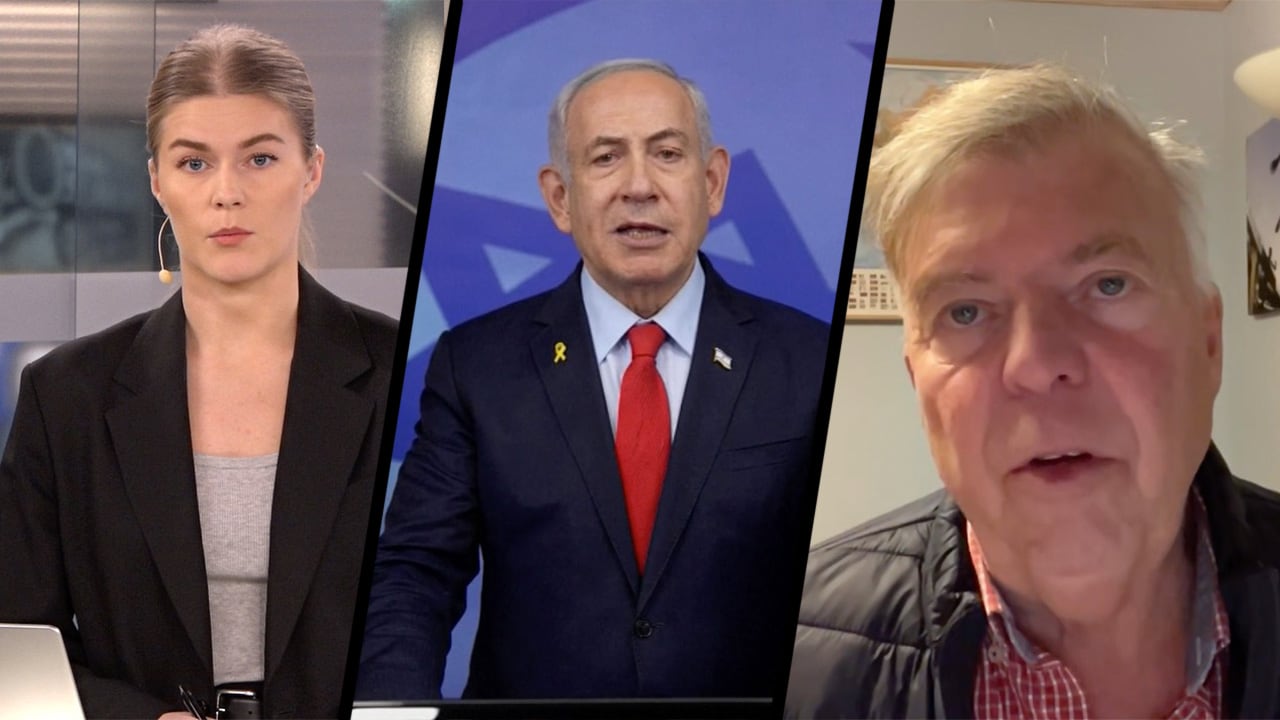
Benjamin Netanyahu
Ceasefire awaits in Gaza if Netanyahu wants to keep Trump in a good mood
Wolfgang Hansson
This is a commenting text. Analysis and positions are the writer's.
Updated 16.44 | Published 16.19
Quick version
- Israel and Hezbollah have reached a truce with terms considered favorable to Israel, indicating Hezbollah's desperation for the fighting.
- The ceasefire may mark a quieter period in the Middle East, but stability depends on future events and remaining military tensions in the region.
- The ceasefire negotiations could affect Israel's relationship with the
US and possibly lead to a future ceasefire in Gaza to strengthen
political relations.
The terms of the ceasefire are so unfavorable to Hezbollah that the group must have been desperate in its desire to end the fighting.
The question is whether Netanyahu will agree to a cease-fire in Gaza next year as well to keep a certain newly elected president in good spirits.

At best, the ceasefire in Lebanon marks the beginning of a calmer development in the Middle East. The decisive factor will be how things develop on the ground.
However, several signs suggest that the ceasefire will last longer than the first 60 days stipulated in the agreement.
Hezbollah has agreed to concessions that were previously unthinkable.
One such is that in the agreement Israel says it has been given a free pass to resume attacks in Lebanon at any time as long as it can claim that Hezbollah has violated the ceasefire.
For the Iran-backed, terror-branded group to agree to such terms, they must be in really bad shape and in desperate need of a break in the fighting.
Another condition released is that a ceasefire in Lebanon must be synchronized with a contemporary ceasefire in Gaza.
Hamas' terrorist act in southern Israel on October 7 last year was the starting point for Hezbollah's renewed shelling of northern Israel. Hezbollah wanted to show its support for Hamas and make even Israelis feel the war firsthand.
The rain of bombs resulted in nearly 70,000 Israelis being forced to flee their homes. Hezbollah's message was that it would end only when Israel agreed to a ceasefire in Gaza.
Finally, Israel had enough.
Bombs in pagers
This time Hezbollah was struck with unprecedented efficiency. It began in September with small bombs planted in pagers and mobile phones belonging to Hezbollah's leadership and military commanders. Several thousand in the leadership echelon lost their sight or were otherwise knocked out. Then followed the bombing that killed Hezbollah leader Hassan Nasrallah and then a number of his successors.Israel followed it up by bombing rows of Hezbollah weapons depots and tunnels.
Today, the group is severely wounded and demoralized, even if it is not eliminated. It will take time for Hezbollah to rebuild. But apparently that is what is the goal of agreeing to the extremely favorable terms for Israel.
As of this writing, Hezbollah has not commented on the ceasefire itself. But Iran has stood behind it and it is Iran that finances Hezbollah. Obviously, Iran does not want to risk the complete elimination of Hezbollah.
Israel, in turn, has been pressured by the fact that the US did not send all the weapons that Netanyahu wanted. Now there is a shortage and Israel needs to rebuild its arsenal.
For the civilian population, the ceasefire is of course very welcome. The Lebanese who do not even sympathize with Hezbollah will not have to worry about nightly bombing raids in the future. Others can return to their homes in southern Lebanon.
Take the credit
The Israelis who were evacuated may eventually move back home.For Joe Biden, the truce is a belated success. But too late to help the Democrats win the presidential election.
For President-elect Donald Trump, the truce is also good news. In the election campaign, he clearly signaled that he wants to see an end to the war in the Middle East because he wants to reduce America's military involvement in the world.

Then Trump can take credit for ending the war. That, in turn, could mean that he gives Netanyahu a fairly free hand for what he wants to do with Gaza in the future.
A ceasefire could also result in the release of a number of Israelis held hostage by Hamas.
So far, Netanyahu has been reluctant to end the war in Gaza because a ceasefire there could also mean the end of his own political career.
Not the last war
He will be held accountable for allowing Israel to be caught off guard by Hamas' terrorist acts. The three suspended corruption trials against him will be resumed.But with Trump in the White House, Netanyahu's room for maneuver at home increases.

The basic reason for Hezbollah's existence at all is to counter Israel and US influence in the region. It has been 18 years since the last war between Israel and Lebanon. The one just finished is certainly not the last.
This applies to Gaza and the Palestine conflict to an even greater extent. Without a political solution that also takes into account the interests of the Palestinians, there will never be peace in the region.
Inga kommentarer:
Skicka en kommentar